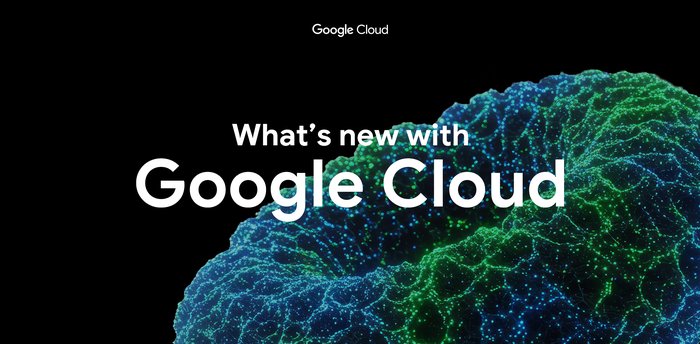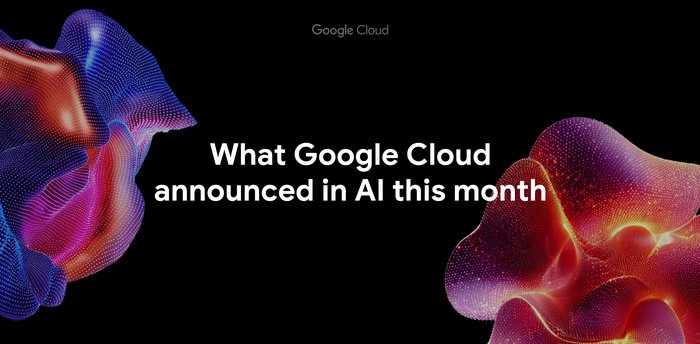Google takes Cloud Machine Learning service mainstream
Fausto Ibarra
Director of Product Management, Google Marketing Platform
GCP NEXT 2016 — SAN FRANCISCO — Hundreds of different big data and analytics products and services fight for your attention as it's one of the most fertile areas of innovation in our industry. And it’s no wonder; the most amazing consumer experiences are driven by insights derived from information. This is an area where Google Cloud Platform has invested almost two decades of engineering, and today at GCP NEXT we’re announcing some of the latest results of that work. This next round of innovation builds on our portfolio of data management and analytics capabilities by adding new products and services in multiples key areas:
Machine Learning:
We're on a journey to create applications that can see, hear and understand the world around them. Today we've taken a major stride forward with the announcement of a new product family: Cloud Machine Learning. Cloud Machine Learning will take machine learning mainstream, giving data scientists and developers a way to build a new class of intelligent applications. It provides access to the same technologies that power Google Now, Google Photos and voice recognition in Google Search as easy to use REST APIs. It enables you to build powerful Machine Learning models on your data using the open-source TensorFlow machine learning library:- Cloud Machine Learning makes it easy for you to build sophisticated, large scale machine learning models in a short amount of time. It’s portable, fully managed and scalable. Cloud Machine Learning works with data in many formats and is well integrated with other Cloud Platform products such as Google Cloud Dataflow, Google BigQuery, Google Cloud Dataproc, Google Cloud Storage, and Google Cloud Datalab. You can easily build predictive analytics models using your own training data. For example, a financial services app that predicts values using regression models, or a classification service for images. Cloud Machine Learning will take care of everything from data ingestion through to prediction. The result: now any application can take advantage of the same deep learning techniques that power many of Google’s services.
- Pre-trained Machine Learning models like Google Translate API and Cloud Vision API are being joined today by Google Cloud Speech API. We're very excited to now offer a full set of APIs that help your applications see, hear and translate. Cloud Speech API brings the same advanced neural network technology that powers voice search in the Google app and voice typing in Google Keyboard. It demonstrates speech-to-text conversion in 80+ languages with unparalleled accuracy, especially in noisy environments, and is blazingly fast. The technology that has already empowered developers to add speech to their Chrome and Android is now available for any application in real-time streaming or batch mode.

Big Data and Analytics:
Doing big data the cloud way means being more productive when building applications, with faster and better insights, without having to worry about the underlying infrastructure. To further this mission, we recently announced the general availability of Cloud Dataproc, our managed Apache Hadoop and Apache Spark service, and we’re adding new services and capabilities today:- BigQuery continues to push the limits of what it means to be a fully managed Analytics Data Warehouse. Today we're announcing lots of exciting new features that make analytics faster, cheaper and easier to use:
- Long Term Storage automatically drops the price of your storage by 50% after 90 days.
- Automatic Table Partitions (coming soon) simplifies the way you store and query data by partitioning your table by date and querying the date ranges you want.
- The new Capacitor storage engine, which accelerates many queries by up to 10x, and Poseidon, a new mechanism that improves data ingest and export speed by 5x.
- Direct query and import of Apache AVRO files, simplifying data interoperability
- Automatic schema detection of JSON and CSV files.
- The new Public Datasets Program to help our community host, share and analyze public datasets.
All these features will come to you automagically, without any upgrades or downtime — the way fully managed is meant to be.
- We recently announced Google Data Studio 360, a new reporting and data visualization product that allows you to unify all analytics workflows into one tool. Data Studio allows you to access, transform and share datasets from several different sources such as Google Analytics, BigQuery, and Google Sheets. You can then visualize all of the different sources in the same report and collaborate with your peers to build beautiful and flexible reports. Google Data Studio is available in private Beta (i.e., invite only) for Google Analytics Premium customers.
Open Source:
Our Cloud Machine Learning offering leverages Google’s cutting edge machine learning and data processing technologies, some of which we’ve recently open sourced:- TensorFlow, Google’s latest machine learning system, is the #1 Machine Learning project on GitHub today. We’re continuing to develop this ecosystem. For example, you can now use TensorFlow Serving with another of our open-source projects, Kubernetes, to scale and serve ML models. The Cloud Machine Learning product extends these capabilities, enabling you to build powerful Machine Learning models with your data on Cloud Platform.
- Earlier this year, we partnered with a number of organizations, including data Artisans, Cloudera, Talend and others to submit the Dataflow model, SDKs and runners for popular OSS distributed systems to the Apache Incubator. This new incubating project, known as Apache Beam, allows you to define portable, powerful and simple data processing pipelines that can execute in either streaming or batch mode.
The Cloud Platform team is super excited about 2016. Some of the biggest brands in the world like Spotify, Atomic Fiction and Khan Academy are using our big data services. We look forward to seeing the innovative ways you’ll use these new products. To get started, visit cloud.google.com/.



